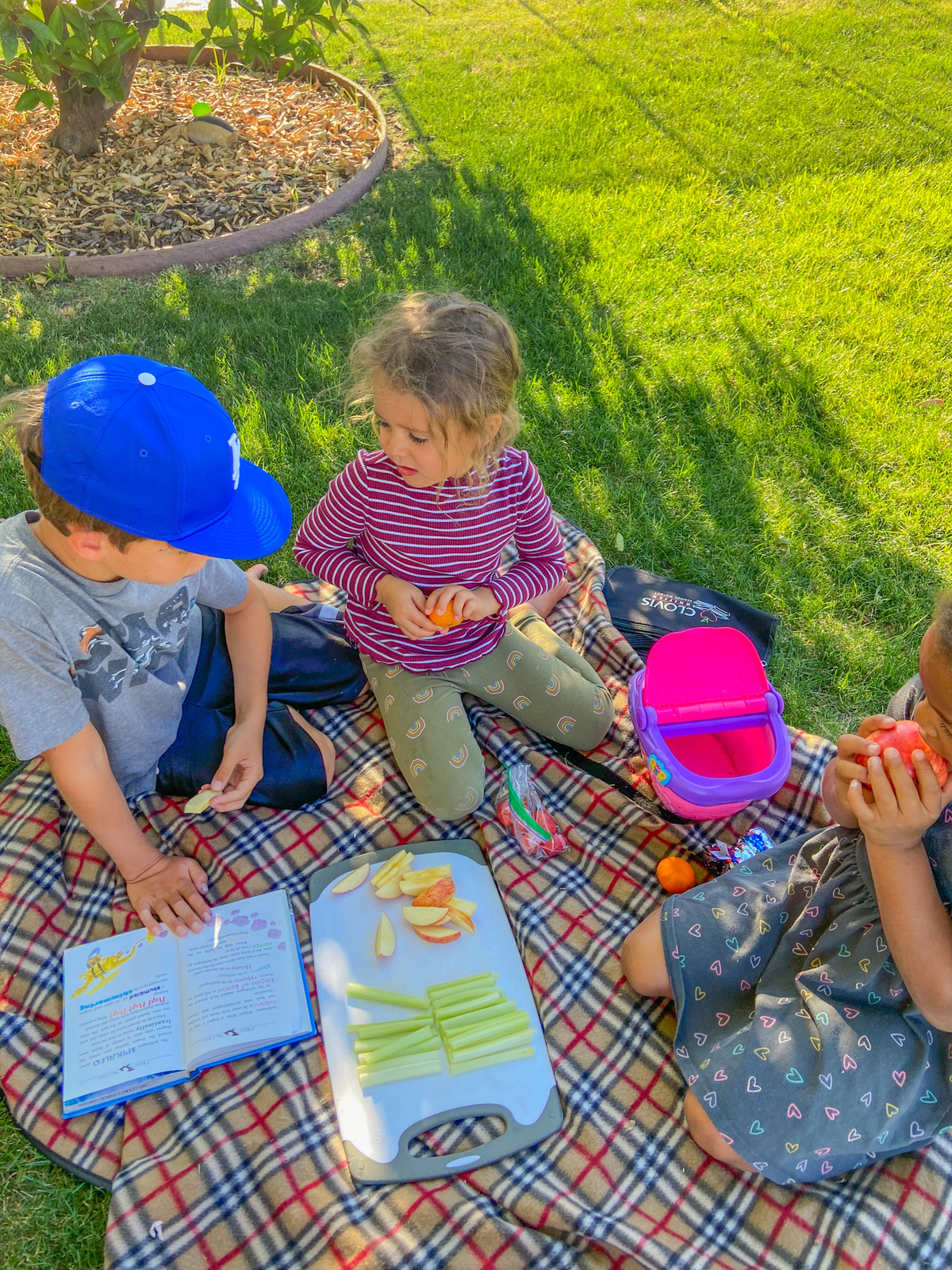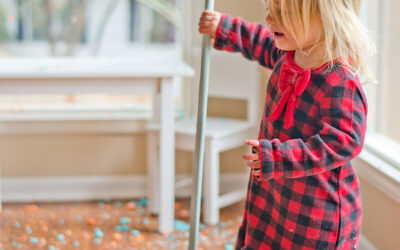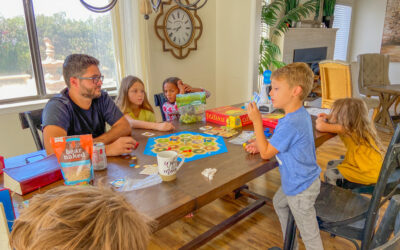“When I pick up my kids after school…they morph into gremlins! What is happening? Their teachers say they’re model students during the school day. Why do they fall apart upon entering the minivan? What can be done?”
I feel this.
One day, I excitedly picked up my kids from school. I watched them playing and giggling with friends. But as soon as we began walking to the car? One threw themselves prostrate on the sweltering concrete. There was weeping. There was wailing. There was more drama than a Real Housewives Reunion special.
If your kids fall apart after school, you are not alone.
Did you know that this phenomenon has a name? It’s called restraint collapse. Canadian parenting expert Andrea Loewen Nair coined this term. And those two words have helped so many moms and dads understand and empathize with this common experience. Doesn’t it feel good to put a name to it?!
Your kids have been holding it together all day: stress, joy, fear, comparison, confusion—using every bit of energy to maintain composure. Now they’re in the comfort of mama’s presence, and all of those feelings erupt like Vesuvius, and we’re over here feeling like Pompeii.
Adults aren’t immune to restraint collapse, of course. Can you think of a time when your emotions were bubbling up under the surface? You held it together just fine until someone you love asked, “Hey, are you okay?” Open floodgates.
When we mamas look into our kids’ eyes: Pop! The feelings bubble bursts.
If this is you, your kids are normal human kids who may just need some time to get their bearings.
Because our kids are wired uniquely, different tactics work for different kids. Try a few of these, use what works, toss what doesn’t. We have the enormous privilege of helping our kids steer through the inevitable rough patches of life.
Here are ten ways we navigate through restraint collapse:
Upon pick up, try a warm hello and then be quiet.
I know, it’s counterintuitive. We want to ask, “How was your day! Tell me all the things!” But sometimes the kid just needs a moment of quiet in the air-conditioned car to mentally process the stuff before they can vocalize it. This has worked great for a few of my kids.
Bring snacks to pickup.
I happen to be a “sure, eat in the car” person. Not like, bowls of cereal, but packaged goldfish, cheese sticks, apple slices. If you are okay with food in your car, now is the time. Chewing mouths are typically not whining mouths. Nip the hunger, salvage your sanity.
Announce that it’s kids DJ day.
Declare a child to begin DJ-ing, announce the order of song picker. Each kid picks one song. Now they’re focused on which song they want to hear, waiting for their turn, and less focused on their hanger.
Delve right into “So? Math test! What do you think? How’d it go?”
or whatever specific thing to follow up on. I know this sort of sounds like the opposite of number one. But for two of my kids, getting them started on a specific topic will zip them right past the emotional meltdown phase. One of my kids will tell their entire life story in response to almost any question about school.
Keep instilling the after-school routine.
Backpacks and shoes put away, wash hands, snack time. (Or whatever yours is.) Sometimes a child will wail throughout the routine. It happens. It’s okay. Keep helping them march towards the food.
Put the punitive stuff on hold for now.
When our kids’ brains are struggling to regulate, try to remember that they also don’t want to be feeling like this. Most of the time, they aren’t purposely tantruming to get their way. They just don’t have the tools to regulate their emotions. If you think she’s tired and needs to go lay down for 15 minutes, don’t frame it as “That’s it, get in your bed right now!” Try, “Sweetie, let’s give your brain and legs a little break. It will feel so nice. Go lay in bed for a few minutes. It’s nice and cool up there, and so quiet.” Same result, different tone.
Don’t take the behaviors personally.
You’re watching the outward manifestation of an internal struggle. Try to guide them through it while remembering they aren’t trying to annoy you, they’re trying to recalibrate after transitioning from school to home.
Pray for endurance and calm.
Just because it’s not personal, doesn’t mean it isn’t stressful! You might need some supernatural help with the drama. Welcome to the club. 🙂
Try relegating interactive screen time to weekends only.
When kids transition from stress ball to tablet time or or video games, they aren’t processing the day; they’re numbing out. The collapse is just delayed until screen time is over. On the outside they might look like they are calm, but their brains are now in hyperarousal mode. This is not helpful for our kids. We want to give our kids the skills to work through their junk instead of stuffing it.
Expect friction.
We are parenting real humans, with real emotions. And they have encountered real struggle at school. The struggle is universal. Moms and dads are not called to fix all of their things, but to help kids process and contextualize. You’re not failing when you face these obstacles. You’re actually fulfilling your calling when the obstacles come, and you take them on, together. Think of the resilience you’re helping your kids build! But it doesn’t happen overnight. It happens in the daily repetition of calm, loving parenting. When you don’t live up to calm or loving, take a breath and try again.
What are your most effective ways to help your kids through restraint collapse? Comment below!





0 Comments